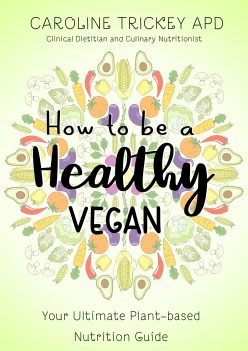Omega 3 Fats
The following is an extract from the article:
The Low-Down on Essential Omega 3 Fats
Because omega-3 essential fatty acids cannot be made in the body, they must come from food.
There are three types: eicosapentaenoic acid, or EPA, and docosahexanoic acid, or DHA (found in marine sources); and alpha-linolenic acid, or ALA (found in plant sources).
EPA plays a major role in supporting heart health and may help reduce inflammation in the body, while DHA, an integral part of cell membranes, plays a key role in brain development and function.
The conventional understanding has been that ALA must be converted to EPA and DHA in the body to be effective; however, emerging science suggests factors including genetics, health status, gender and dietary habits — especially the amount of other fatty acids (omega-6) in the diet — can influence this conversion rate.
Additionally, recent evidence suggests ALA may have health benefits of its own, independent of the conversion to EPA and DHA.
The Best Sources of Omega-3s
Fatty fish, such as salmon, is one of the most concentrated sources of EPA and DHA. However, the amount of omega-3s varies in wild versus farm-raised and among varieties of fish, such as Chinook or sockeye salmon.
To limit long-term exposure to contaminants and to maintain healthy and sustainable fish populations, choose from a variety of fish. Bluefin and albacore tuna, bluefish, black cod, rainbow trout and mackerel all deliver omega-3 fatty acids. Although they are often overlooked, herring, sardines and anchovies are affordable and sustainably sourced options.
Grass-fed meat and dairy products also naturally deliver small doses of omega-3s. In fact, some cattle ranchers are increasing the amount of omega-3s in animals they raise by feeding them marine algae or flaxseed.
Although it is debated whether omega-3 needs can be met with ALA sources alone, including them in the diet is a good move. Chia seeds, ground flaxseed and flaxseed oils, seaweed, soybeans and walnuts are all healthy additions to the diet.
Vegetarians, vegans and anyone with a confirmed allergy to fish oil can supplement with microalgae to meet EPA and DHA needs. Microalgae is the original source of EPA and DHA, and is the primary food source for most fish, so algal oils deliver omega-3s without a fishy aftertaste.
Omega-3s and Their Impact on Health
…lower risk of cardiovascular disease.
…modestly reduce blood pressure and reduce triglycerides by as much as 20 percent to 50 percent.
…some studies on fish oil supplements show promise in slowing cognitive decline in those with very mild cognitive dysfunction. These outcomes depend on the dose and EPA to DHA ratio, and can vary depending on the population studied.
…Population studies suggest young children who eat fish once or more per week have a lower risk of developing eczema.












